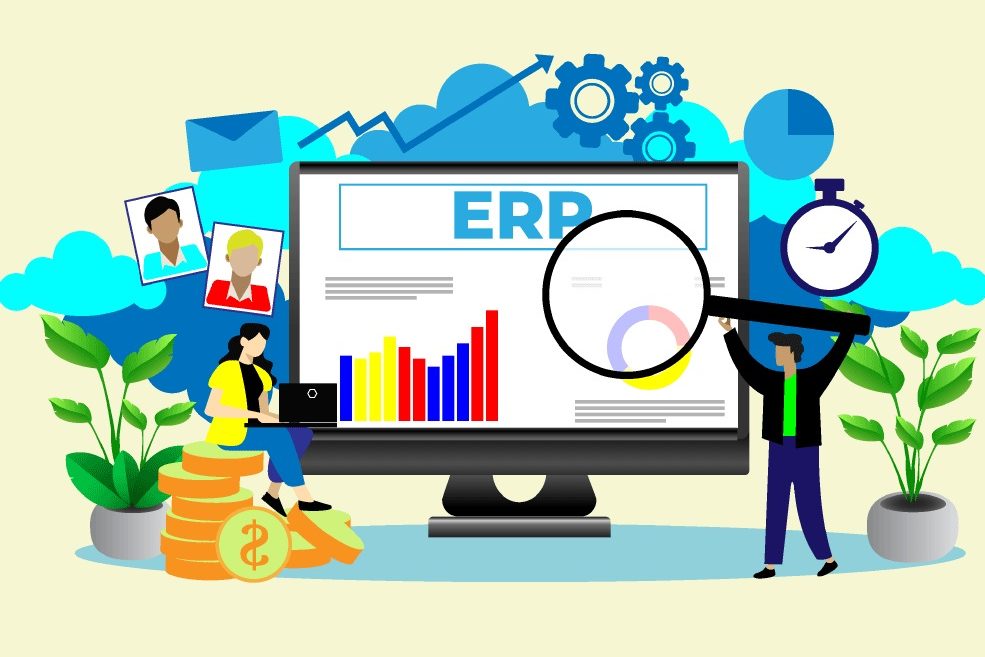Rich Resources for Excellence

What Is Go Live In ERP System? And 3 Other Software Implementation FAQs Demystified
Are you preparing for an ERP project, but not sure how the process works? There are lots of misconceptions surrounding ERP implementations, including: The potential risks of introducing a new system within your operations; How long the return on investment will be; How long it takes to implement
In this blog, we answer your frequently asked questions surrounding ERP implementations, so you can make your journey from beginning to launch as smooth as possible.
#1. What is the go live phase in an ERP project?
The go-live phase of an ERP project is where you first launch your system so it’s ready to be used within your business operations. With the right expertise and implementation, there are numerous ways that you can maximise the benefits an ERP system has to offer. But there are some challenges you need to address to achieve a successful ERP go-live:
Tweak your timeline if needed
In most cases, a go-live will perform as expected, and even if adjustments need to be made, this should only extend the timeline of your project by a short amount of time. Reasons for timeline extensions vary, from beneficial third-party apps being introduced to the market, to ensuring your implementation is tuned to perfection.
The result will be a resilient, robust system you can rely on, so this small delay will prove to be a success especially in the long run.
Understand your risks
User acceptance testing is key, as it ensures end users are able to use the software effectively to mitigate risks. This can be done through training in key areas during the implementation process to guarantee a successful go live.
Know how you’re going to track project deliverables
This can be done by creating a go-live checklist to ensure you have all processes in order. A go-live checklist includes factors like the suitable resources available and your transformation delivery ecosystem, ensuring the right partners and external expertise are on board.
#2. Why should I implement an ERP?

Implementing new software provides several benefits to your business. In this case, an ERP system can centralise critical business data, making it easier for teams across departments and functions to collaborate, access real-time information on demand and more.
Some other key benefits of implementing ERP software include:
Better time management
The ability to automate time-consuming tasks means you can focus on your most important activities. Examples of automated processes with implementation include advanced scheduling and data reporting set over periods of time (e.g., monthly), benefitting the efficiency of decision making.
Improved organisation
Streamline your processes effectively with software that manages all your operations in one package. With advanced reporting tools, segregate and streamline your data easily from a compiled, detailed database, where your information is always accessible.
Real-time visibility on processes
Have a complete view of your customers who are currently engaging with your business and keep track on the status of their orders. This can be done through linking your ERP system to your CRM, facilitating cross-team collaboration by bringing your front and back office together.
Enhanced changeability
An ERP system allows you to view data from all your departments, providing a complete understanding of your business processes and where you could improve.
For example, inventory management – now you can avoid expenditure on potentially wasted goods and quickly place orders for new stock when running low.
Here are some additional benefits of an ERP system, in particular solutions built on the cloud:
- Functional and technical updates are automated by a vendor like Microsoft
- Cuts down your costs – the vendor will handle all the costs associated with setting up your system
- Enables you to stay on the latest software versions – the vendor will monitor your system, keep track of updates, and automatically release patches
- Get easy access to data anytime, anywhere – as your data is stored in the cloud, you can access it even when on-the-go
- Easy to scale up or down
- Enhanced data security, with security experts who monitor your data on a 24/7 basis
- Built in elasticity with the system, meaning no matter if you have a small or large quantity of users, it will still deliver the same results
#3. How long does the ERP implementation process usually take?
This largely depends on the size of your business. For larger companies, this could take a couple of years while for small medium businesses (SMBs), implementing new software may only take a couple of months. However, there are other factors that may affect the length of your ERP project, including:
- The overall customisation of your ERP system, including third party apps and configuration
- The capabilities required for implementation, such maintaining full stakeholder engagement throughout the project, and driving project deliverables
- The resources required, including user acceptance testing (UAT) and technical expertise
With a staff of Dynamics veterans with experience working with manufacturers, Naviworld has the resources and expertise to show you the potential of Business Central for your company—and then deliver on that potential. Business Central is not only a business solution, but also an investment in your company’s growth and future. Talk to Naviworld about how we can use Business Central and other Microsoft technologies to help you reach your business goals.
** Hotline: 092 636 2468
** Email: info@naviworld.com.au
** Fanpage: NaviWorldVietnam
Featured Post
POS System For Ferry Liners And Cruise Boats
March 20, 2023POS System For Ferry Liners And Cruise Boats Time is of the essence in retail, and nowhere as much as in the travel sector. Every time a new contingent of passengers comes onto your vessel, you want t…
Kitchen Display System (KDS): Why Your Restaurant Kitchen Needs It
February 13, 2023Kitchen Display System (KDS): Why Your Restaurant Kitchen Needs It How do you run your kitchen operation today? If you’re still using handwritten paper notes or printed tickets to process orders, th…
How To Give Holiday Shoppers The Most Satisfying E-Commerce Experience
December 8, 2022How To Give Holiday Shoppers The Most Satisfying E-Commerce Experience Even if more consumers will venture to stores this holiday season compared to last year, online purchases are still expected to m…
Are you Ready?
Get Started with Dynamics 365?
Ready to get going?
Please share your contact informations below to allow one of our expert to contact you.
About NaviWorld
NaviWorld Australia is a leading provider of end-to-end integrated and flexible business management solutions for mid-sized companies in Australia and the surrounding region. With offerings tailored to various industries, from Distribution to Retail, Services to Manufacturing, NaviWorld brings a portfolio of globally successful, fully integrated technology-driven business solutions to our valued customers.
Solutions
Contact Us
Australia
- West Podium, Level M2/525 Collins St, Melbourne VIC 3000, Australia
- ABN: 45 657 530 455
- Hotline: +61 412 108 888
Vietnam
- Hanoi Office: 11th Floor, 41 Hai Ba Trung Street, Hoan Kiem District, HN
- HCMC Office: 13P Floor, 2BIS Nguyen Thi Minh Khai St., Dist. 1, HCM City
- https://naviworld.com.vn/
Offices also in
© 2022 NAVIWORLD AUSTRALIA PTY LTD